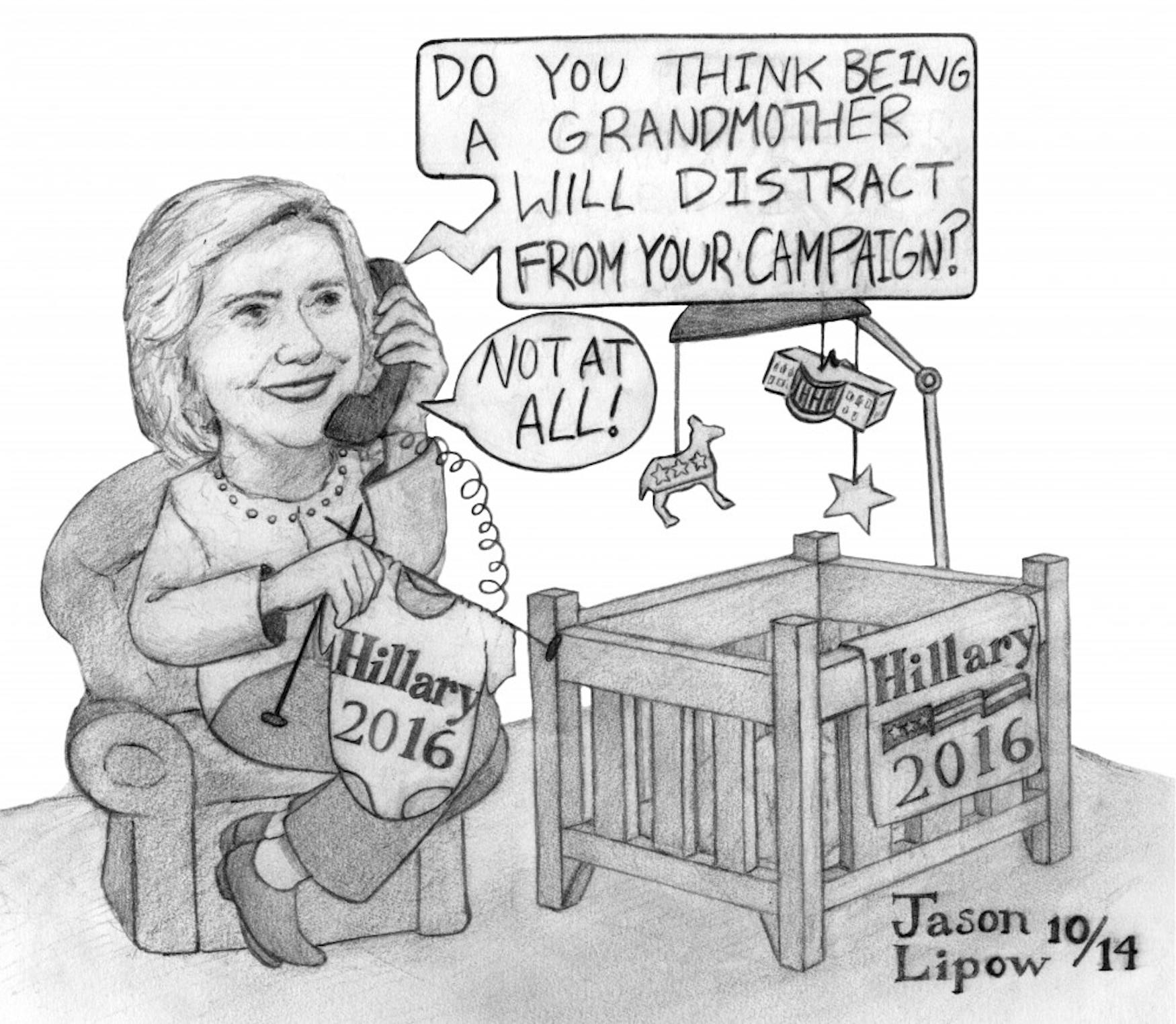Judge Clinton on policy choices, not gender
In her memoir Off The Sidelines, New York Senator Kirsten Gillibrand recalls the numerous times her male colleagues on the Hill made comments about her weight, including “You know, Kirsten, you’re even pretty when you’re fat.”
That comment came when Gillibrand was pregnant with her second child, which really raises the question of whether the still anonymous congressman knows what a pregnant woman looks like. Yes, women do tend to gain weight when they are pregnant.
That story reminds me of another female senator from New York and of how some male politicians and commentators seem to have forgotten some aspects of human biology. There have been a number of jokes and comments around the idea that Hillary Clinton, or any woman for that matter, might not be able to serve as president because she might get too emotional while on her period, or, according to Maureen Dowd in a 2008 article, women are too emotional, period.
First of all, Hillary Clinton is 66. I don’t want to speculate, but I think it’s safe to say that she has already gone through menopause. More importantly, it is frankly ridiculous to say a menstruating woman can’t hold a position of power.
Recently, The Hill ran a piece on Clinton, exploring her failed 2008 Presidential campaign, her focus on women’s issues in the 2014 midterms, her all-but-assured Oval Office bid in 2016 and whether Clinton’s decision not to highlight her status as a woman doomed her chances in 2008.
The article accurately describes the struggle that female politicians and candidates have when it comes to balancing gender and policy. If Clinton hopes to become the first woman president, the article argues, then she must highlight that she is indeed a woman.
Clinton’s campaign in 2008 was shocking in that she did not make her gender a big issue. This was a sharp contrast to Barack Obama, whose platform of policy based on hope and change did subtly highlight his then potentially historic role as the first black president. Rather, Clinton ran as a Margaret Thatcher-esque figure, a tough leader who had vast political experience, regardless of gender. That strategy, though, may have backfired. After all, one of the times when Clinton leapt ahead in the polls came after she broke down and cried before the New Hampshire primary, a rare display of emotion.
I don’t want to say Hillary Clinton lost in 2008 because of how she ran her campaign or how much focus she put on being a female candidate.
She lost for myriad reasons, including her inability to meaningfully separate herself from her Iraq vote or closeness with Wall Street, as well as her struggle to combat Obama’s identity as a new candidate who was different from the establishment. The Hill article does, however, raise an interesting question. Why do we care so much about how women act on the campaign trail and in positions of power?
After all, how many times was Paul Ryan asked about his ability to be vice president with young children? That was one of the more sexist objections raised about Sarah Palin in 2008 by Bill Maher and the National Organization for Women, after all. And nobody saw Mitt Romney solely as “the Mormon candidate,” even though religion and gender are both important to people’s identities.
But the media sees Clinton, by and large, as only the “female candidate.” She made headlines most recently for becoming a grandmother, while nobody batted an eye when Mitt Romney became a grandfather in 2012. While her political agenda has been commented on, it is rarely the main focus.
I don’t know if Hillary Clinton will run in 2016. If she does run, I don’t know how she will campaign and how much focus she will put on being a woman candidate for president.
However, I do hope, perhaps futilely, that people’s perceptions of Clinton are based on more than how she fits into the societal boxes of how a “female candidate” is supposed to act: whether she shows emotion on the campaign trail, acts like a “male candidate,” whatever that means, if she wears her trademark scrunchie and if she cries. I personally don’t think Clinton should play up her gender in 2016.
As much as I acknowledge the importance of breaking the glass ceiling, it shouldn’t be her only campaign platform. After all, no male candidate who is the first of his race or religion is expected to run his entire campaign around that historic first.
President Barack Obama ran on a platform that highlighted change—including the racial change of having a black man in the White House—but his campaign platforms were ending the War on Terror, rebooting the healthcare system and restarting the economy, not simply his skin color. Clinton should do the same thing. If she wants to run on a pro-women’s issues platform, I would be thrilled. I would be less thrilled if her platform only relied on how she is a woman instead of on substantive policy issues.
Anything less than that would imply that gender, not policy, should define Hillary Clinton. And that is harmful to all women trying to break into politics.



Please note All comments are eligible for publication in The Justice.